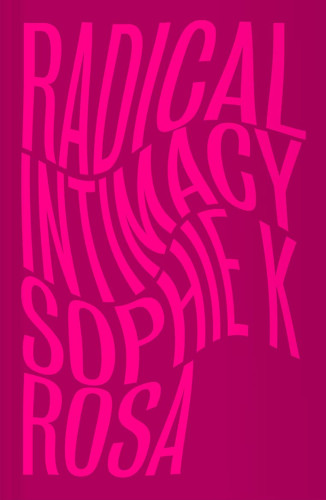This perceptive book sets out to release our intimate relationships from the economic forces that twist them out of shape. From the medicalisation of mental health to the truncated kinship of the nuclear family and even the commodification of funeral rites, Rosa traces the long arm of a profit motive run rampant, bending our everyday lives to its will.
How to respond?
With revolutionary politics, Rosa argues, but also by trying to step out of self-defeating structures of belonging.
Ditch that dream – in every sense unaffordable – of semi-detached bliss boxed in by privet hedges, mile after self-replicating mile of it.
We’re encouraged instead to meet the assault on intimacy with intimacy itself; to queer the meaning of home, re-imagining genuine mutuality.
Allow our love room to breathe, let our intimacy be radical.
I’d expected a book with such a title to explore intimacy as the essence and experience of relationship, perhaps through testimonies of deep kinship, perhaps through ecstatic poetry.
This book is not that, but its pacy, free-ranging text makes for a powerful offering all the same: a solidarity-centred, anti-capitalist critique of everyday relationships.
For this reader, the Marxist frame seems close in places to hemming-in the idea of intimacy. Rosa comprehensively shows how rampant capital sours kinship, but non-capitalist societies too have traded in taboos that demean difference, violently policing the ‘right’ and ‘wrong’ ways to relate.
And while Rosa exposes many a nuclear home as toxic, particularly for women, I know families whose inward love and outward generosity show that capitalism’s favoured family form is not always its servant.
I warm most to the passages at the close of each chapter when the writer briefly lights on fresh terrain. Almost as an afterthought, but a precious one, we’re reminded that intimacy is ‘spiritual ground’.
And ‘for any healing to happen, indeed for liberation to be possible, we must know ourselves and others to be both hurt and hurting, harmed and harmful – and to be fluid: always capable of being otherwise’.
What lands squarely with me as an activist is the book’s appeal not to relegate our intimate lives to a bourgeois concern.
‘Home’, whatever it means for us, is not only where the forces of capital wreak their havoc, Rosa insists; it’s also where the strength to overcome them must be nurtured.


